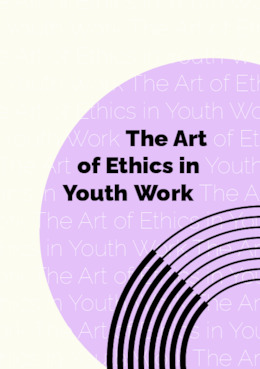Toolbox — For Training and Youth Work
All new tools in your inbox: Be the first to know about new tools for learning with our e-mail notifications.
Report
The art of ethics in youth work
The paper gives an insight into different modalities of ethical codes of conduct in youth work and explores how ethics influence the recognition of youth work.
Aims of the tool
Objective 1: The role of the ethical codes (standards and frameworks) in supporting quality youth work in the selected countries (Australia, Estonia, and Serbia).
Objective 2: to identify the types of relations addressed and look into how these codes of ethics influence relations of youth work with other practices and professions that work with young people in the selected countries (Australia, Estonia, and Serbia).
Objective 3: to investigate the support systems for implementing the ethical codes in the selected countries (Australia, Estonia, and Serbia).
Objective 4: to identify common discussion points that will facilitate knowledge transfer among the partners involved in this project and help draft preliminary Europe-wide guidelines for the development of
ethical youth work practice and policy.
Furthermore, the research aspires to serve as a starting point for reflection on ethical standards and how they support the development of quality youth work practice and policy in Europe. This resonates with the Final Declaration of the 3rd European Youth Work Convention.
This demonstrates a lack of quality standards and the recognition and validation of European youth work. Likewise, the European Youth Work Agenda, a strategic framework for strengthening and further developing youth work, calls for a Youth Work Research Agenda that implies research on the existing commonly agreed professional standards for youth workers’ education and training (e.g. competence models and frameworks, code of ethics, curriculum, etc.).
Description of the tool
The research results will be used within and outside the consortium partners to support the development of ethics in youth work. The collection of practices and approaches presented through case studies can also inspire countries that want to start shaping the framework for ethics in youth work in specific contexts. Finally, the document can be used for further research in this field in order to showcase the importance of ethics in youth work in Europe.
Available downloads:
Disclaimer
SALTO cannot be held responsible for the inappropriate use of these training tools. Always adapt training tools to your aims, context, target group and to your own skills! These tools have been used in a variety of formats and situations. Please notify SALTO should you know about the origin of or copyright on this tool.
Tool overview

http://toolbox.salto-youth.net/3522
This tool is for
Youth workers, youth leaders, researchers in the youth field
and addresses
Personal Development, Organisational Management
Behind the tool
The tool was created by
Sladjana Petkovic, Tim Corney
in the context of
Project "The art of ethics in youth work" funded by Erasmus + programe and leaded by NAPOR.
The tool was published to the Toolbox by
Bojana Stojkovic (on 29 March 2023)
and last modified
7 February 2023
Comments
No comments have been posted yet.
If you want to comment on this tool, you need to be signed in with your MySALTO account. Sign in now